The double degree programme takes place over the course of two full academic years. The first year is spent in Paris at Sciences Po studying for the Master Affaires Européennes. The second year is spent in London at the LSE, studying one of the European Institute's programmes, either:
- MSc Political Economy of Europe
- MSc GLobal Europe
- MSc EU Politics
The European Double Degree also gives students unique exposure to decision-makers and experts from the worlds of politics, media, business and academia. There is a core seminar exclusively for the LSE-Sciences Po Double Degree Master Students during their first year at Sciences Po.
At the end of two years of successful study, students will be awarded both the Master Affaires Européennes from Sciences Po and either the MSc Political Economy of Europe or the MSc Global Europe or the MSc EU Politics from LSE.
Programme Specifications
Sciences Po
For over one hundred years, Sciences Po has been training some of the best young minds of France and Europe for leadership roles in both public and private sectors. As one of Europe's most prestigious universities, Sciences Po prepares its students for careers in international business, multilateral organisations, national ministries and agencies, consultancy, academic, non-governmental organisations and the media.
Students are drawn to Sciences Po for its commitment to understanding the contemporary world through a rigorous, multi-disciplinary grounding in the social sciences. A steadily increasing number of its students- some 25% of the total- are drawn from abroad. For international students, Sciences Po offers the opportunity of solid training in contemporary history coupled with a comprehensive and integrated core curriculum. They also benefit from Sciences Po's famous 'method-training' seminars, and from other innovative and practice-orientated features of its pedagogical approach.
What our students say
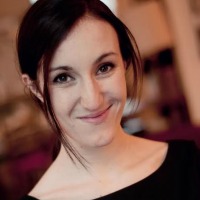
As a final year undergraduate student applying for the double degree programme, I feared that there would be too much overlap between the two programmes. Luckily enough, I found that the two degrees proved to be nicely complementary, and this complementarity was the most enriching part of the double degree programme.
Studying at Sciences Po was an opportunity to spend quality time with the EU, understanding the political, economic and legal processes that lie behind decision-making in Brussels. On the other side, my year in London as a student on the MSc European Studies: Ideas and Identities focused on the ideas behind the European construction. Thus, in my first year, I could find out more about how the EU works concretely; in the second year, I could ask questions about why ‘Europe’ exists at all.
If I had to resume the double degree in one sentence, I would say that it is about knowing how things work, being able to look at issues from all sides, and learning that ‘why’ and ‘so what?’ are really the most important questions you can ask. I think that this truly comprehensive education, based on a good understanding of how things work and a healthy culture of doubt, had a crucial role in helping me secure a place on the European Institute’s MPhil/PhD programme. Hopefully, what I have learnt as a postgraduate student at Sciences Po and LSE will help me through the next four years and keep my mind active for the rest of my life.
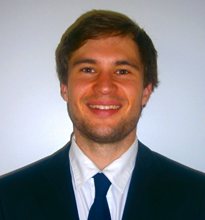
After having read Economics during my undergraduate I felt the urge to do a master’s degree that offered me a wider range of subjects, which I could still link to my economic background. When I found out about the double degree in European Studies at Sciences Po and LSE and its appealing curriculum, I knew that this was my first choice. As a Luxembourger the EU had always interested me. Not only did I get to study at two of the world’s most renowned institutions but I was also able to turn my genuine interest into my passion.
When I first met my double degree colleagues in Paris I was amazed both by their diverse academic and cultural backgrounds and the variety of their professional experiences. Though at the beginning of the year we all had different fields of expertise, we all left Paris with a solid knowledge of the functioning and internal dynamics of the EU, thanks to a wide range of modules ranging from EU Law and the EU’s political system to the Union’s economic integration. Besides my academic classes, I was able to attend conferences with high-profile speakers and I got to choose Russian as a new language to learn, which I was able to pursue at the LSE.
Once in London, the double degree students were split into their respective master choices. Among the three options, I picked the political economy of Europe track, which enabled me to build on the knowledge I acquired during my undergraduate degree and my first year in Paris. Although LSE and Sciences Po have a lot in common, they complement each other on many other levels. Not only were we confronted with two different teaching styles but we were also able to pick different modules that best suited our interests and career goals. In the end, I can only highly recommend this double degree to anyone who wants to be exposed to two challenging environments
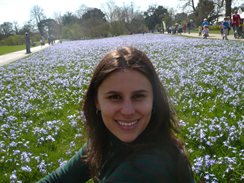
When I learned that there was a double degree programme in European studies between Sciences-Po, Paris and the LSE, I couldn't imagine better settings for my Masters studies. Not only was I set on studying in Europe, but I was also drawn to the renown of both institutions. Coming from North America, the subject of European integration was both fascinating and singular to me. I had taken a few courses in European politics and EU integration prior to entering the Masters programme, but what I wanted was a truly European perspective on such a uniquely European subject.
Fischer-SouanParis and London proved to be different yet complementary settings in which to become immersed in the world of European affairs. The first year in Affaires Européennes at Sciences-Po required a certain adjustment on my part in terms of the academic style and pedagogic methods. Though we all faced challenges, the sheer number of us in the programme with diverse academic and cultural backgrounds meant that the process of adaptation was the norm, rather than the exception. As students of EU institutions, policy-making and law, we became highly proficient in the internal dynamics and technicalities that drive the process of European integration. The number of courses that we had in common allowed us to forge a great sense of solidarity. Put simply, throughout the year in Paris, we, the double-degree students from different parts of Europe and the world, converged around a range of interests in the European project and the vibrancy of life in the French capital.
Then came London, where we had the opportunity to specialise in a specific field of European studies. For me, this meant becoming slightly less focused on the actual European Union, and more on the political and philosophical underpinnings of Europe as an evolutionary concept through the Ideas and Identities programme. For others, it meant engaging in the policy-focused areas or the political economy aspects of European integration. The diversity of course choices allowed me to develop my interests in political philosophy, European history, contemporary migration and even Turkish political economy. Though the students of the double-degree became more fragmented at the LSE due to the three specialisations, I don't think we ever lost sight of our common experience and the friendships we cultivated. Reflecting on the two years I spent in this Masters programme, I feel I achieved a great deal academically and in terms of personal growth as a result of my engagement with such a wide array of dedicated and interesting students, professors and EU-practitioners."
LSE-Sciences Po Double Degree in European Studies
Career destinations
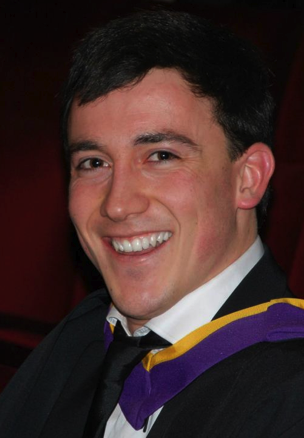
"In late August 2011, as I gathered in The George (the famous LSE pub) with fellow LSE-Sciences Po friends to celebrate submitting our Dissertations and the official end of our academic studies, I felt happy and nostalgic. Happy, because I was going to start working at the Financial Services Authority (FSA, the UK financial regulator) a couple of weeks later. But also nostalgic, because the two years I had spent studying the LSE-Sciences Po Double Degree in European Studies had been incredible from all points of view. On a personal level I had the opportunity to meet very nice and interesting people, true friends whose diversity of experiences and profiles were doubtlessly one of the most important aspects of this degree. Socially, the various associations/societies made my student life incredibly lively, as I was heavily involved in the LSE Students’ Union European Society. Academically, these two world-class universities offer an impressive breadth and depth of knowledge that only equals the quality of the teachers who provide it. Only in such places will you hear a teacher start his course by saying, “When I was advising the Chinese government…” Culturally, this degree condenses two very different approaches to academic studies, developed on both sides of the English Channel and which appear contradictory but are in fact complementary – despite having been at war for 900 of the past 1,000 years.
The skills I developed at Sciences Po and LSE allowed me to secure a job relatively quickly. LSE’s flexibility in allowing me to choose courses outside my department (in finance) allowed me to develop my professional profile as I intended to. As the FSA has been split into two new regulatory bodies, I now work at the Prudential Regulation Authority (PRA) – the part of the Bank of England that supervises banks. My role consists in providing analytical support to the supervisors of big banks on international macroeconomic and financial risks. I find my job extremely interesting, and feel very grateful to both universities for helping me secure it. I will soon be going on secondment from the Bank of England to the European Central Bank (ECB) for 6 months, to analyse the ECB’s monetary policy transmission mechanism. This new step in my career only confirms my view that Sciences Po and LSE provide a very powerful boost to a world of opportunities."
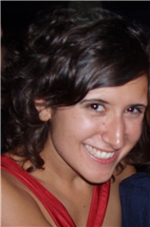
"When I applied for the LSE–Sciences Po Double Degree in European Studies in 2008, I was a convinced young European who wanted to contribute her best to the European Union, especially through the creation of a true European identity. Nonetheless, in the course of my first year at Sciences Po, my academic and professional horizons were enlarged thanks to the contact with inspiring scholars such as Eiko Thielemann, who introduced me to a whole new topic which I soon became completely passionate about: international migration. In this regard, the flexibility of the European Institute's MSc programmes allowed me to specialise in international and EU migration policies during my year at LSE, with a focus on the human rights and development issues at stake. This shift was also evident in my extracurricular engagement at Sciences Po and LSE: whereas I fully participated in the vibrant student life of both schools, it was in London that I became involved with student societies like Amnesty International to help defend the rights of immigrants, refugees and asylum-seekers. The combination of my theoretical knowledge of EU migration policy and practical experience of human rights advocacy at grassroots level allowed me to coordinate a petition campaign launched by the Brussels-based NGO 'December 18' to urge EU Member States to ratify the UN Migrant Workers Convention immediately after finishing my dissertation at LSE in August 2010.
In January 2011 I moved to New York and started interning at the Permanent Mission of Spain to the United Nations, with the main purpose of getting a migration-related job within the UN System. I owe the Double Degree for having widened the scope of my professional ambitions from the European to the global level, as well as having allowed me to find a new overall direction for my career: giving migration policies worldwide a more humane face, one of the main challenges which the international community will be confronted with in the coming decades."

I completed the double master's degree in European Studies between the London School of Economics and Sciences Po in 2007-2009. The aspect I most enjoyed in pursuing this curriculum was its flexible character. Being professionally interested in political risk, I was often offered the chance to study a range of topics above and beyond the European Union's immediate institutional horizon. For example, one of my favourite courses at LSE dealt with European security and the ambiguous relations between overlapping security architectures in the post-Cold War era. Another focused on elements of continuity and novelty in Soviet and post-Soviet foreign policies. All in all, I found the level of courses, professors, and students stimulating, and the two schools' atmospheres forward-looking and open. This was a fresh reminder of my undergraduate studies at the Johns Hopkins University, as US-like openness had always been particularly important to me.
Throughout my academic studies, my view of academia was quite independent as I continuously sought to complement it with personal and professional endeavours such as freelance writing and internships. I found both the LSE and Sciences Po to be fertile grounds for such activities. Today, I work as an analyst for the World Economic Forum's Strategic Risk Foresight Team, which conducts global risk analysis and scenario planning on a variety of industry and regional issues. The World Economic Forum, best known for its Annual Meeting in Davos, is also a year-round hub for creating ties between public, private, and non-governmental players around thought leadership and societal development projects. In the words of one famous LSE alumnus, "For every photo-op with a celebrity […], there is a corporate citizenship deal struck that goes largely unnoticed -- but important to the people on the ground thousands of miles from Davos who will actually benefit." The work is fascinating and I benefit from my learnings at Sciences Po and LSE on a daily basis. In fact, several of my colleagues are fellow alumni of both schools. I feel studying at LSE and Sciences Po – two schools with highly diverse student bodies – was a great preparation for working in such a multicultural and international environment, where dozens of nationalities interact in multiple formal and informal working languages."